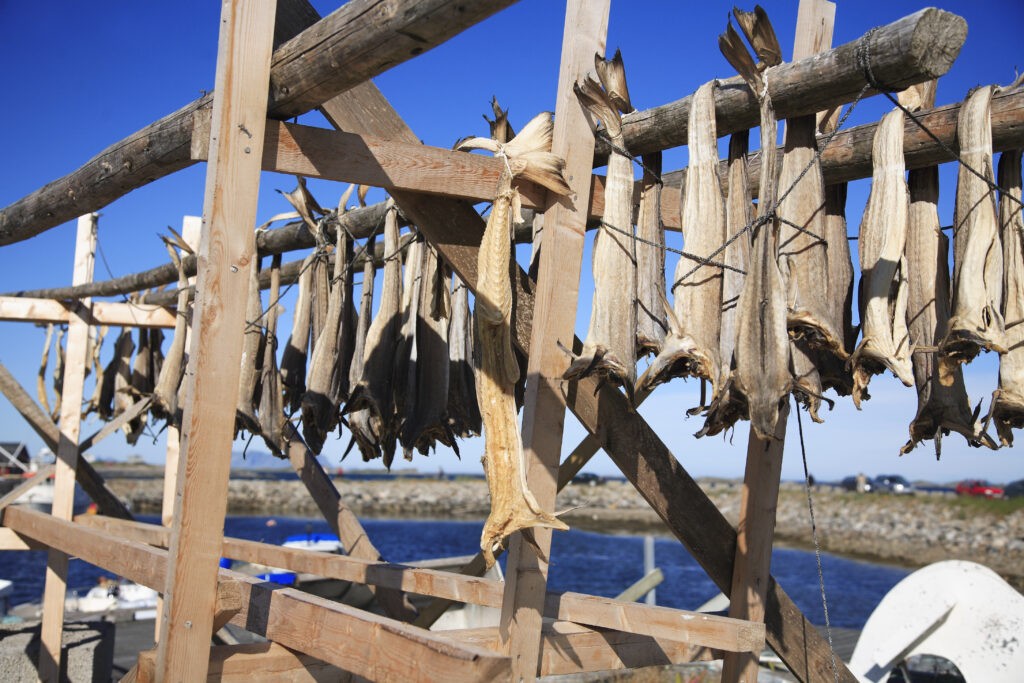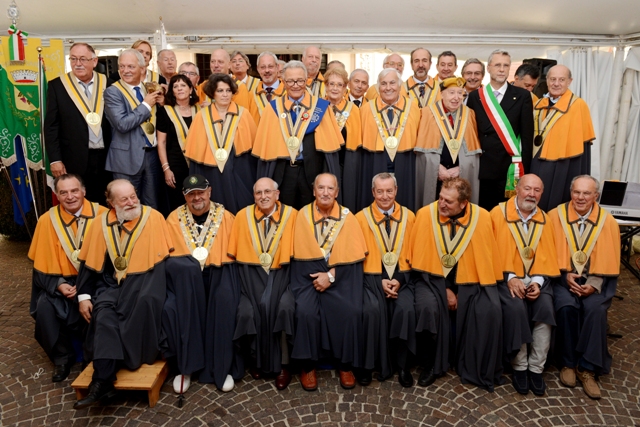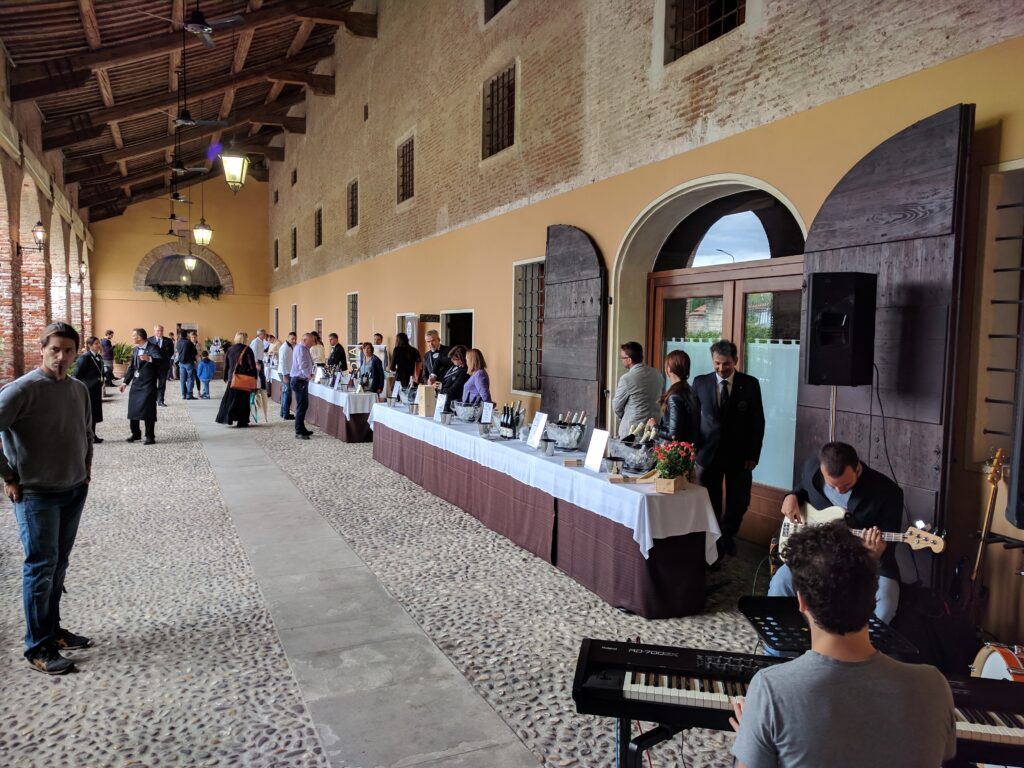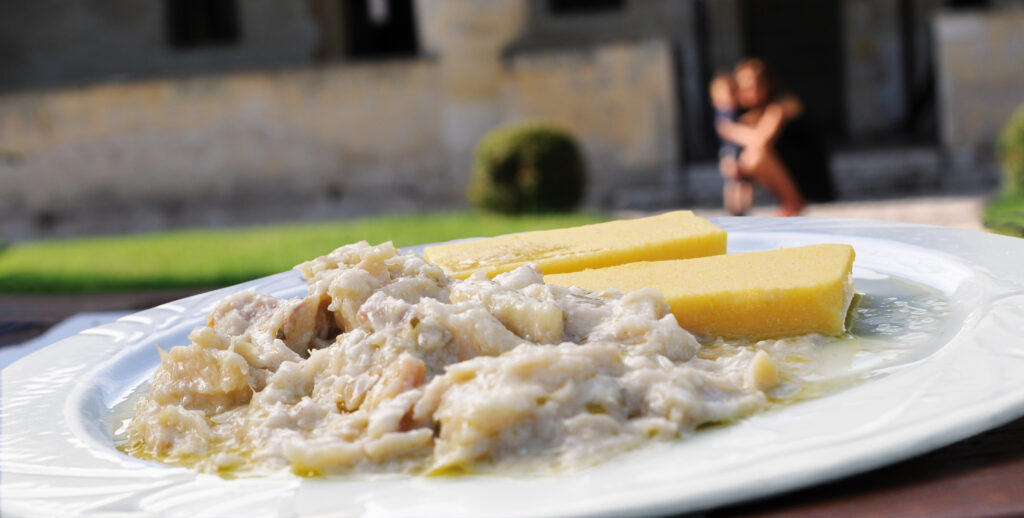In Vicenza, a city in Veneto in northern Italy, cod is a serious matter. You are probably familiar with the term “stoccafisso,” but everyone calls it “bacalà in Vicenza.”
The terms “baccalà” and “stoccafisso” refer to two different methods of preparing the same fish, cod. The name “baccalà” comes from a more commonly used pronunciation in Veneto, making it simpler than “stoccafisso.”
Although this terminology is not entirely accurate, it has persisted over time and it continues to confuse among those who are not from Veneto. Indeed, many people use ‘baccalà’ to refer to salted or fresh cod, while ‘stoccafisso’ refers to cod that has been air-dried in the North.
The history of Bacalà
In 1431, Piero Querini, a Venetian merchant, embarked on a commercial voyage beyond the Mediterranean to find fortune in the Flanders. He departed from Candia (Crete) aboard a ship laden with Malvasia wine, aromatic woods, spices, and cotton. However, his dream of commercial success vanished when the ship wrecked.
Part of the crew perished in the stormy sea, while one of the two lifeboats managed to reach a snowy, deserted islet. The survivors subsisted on melted snow, seafood, and shellfish. Eventually, the inhabitants of a nearby island rescued them, welcomed them, fed them, and cared for them.
These islanders had a particular method for preserving their main food, cod: they salted it, and dried it in the air for months, making it as hard as a stick. They called this food “Stockfiss”. The term was incorrectly translated as ‘baccalà’ in Italy, even though it actually refers to cod dried under salt.

Querini, at the end of his long journey by sea and land, returned to Venice bringing with him this new and interesting food, which he exchanged along the way for provisions, accommodation, and various transport services.
Baccalà, which became a staple food for the lower classes, played a crucial role during the period of the Council of Trent, due to its long shelf life, low cost, and adaptability to the strict dietary rules of the time.
The Bacalà Festival
Bacalà is such a serious matter in Vicenza that there is a festival dedicated to it, complete with the “Confraternita del Bacalà” (Brotherhood of Bacalà).

The Festa del Bacalà alla Vicentina is a historic culinary event sponsored by the Veneto Region and the Municipality of Sandrigo. This year it will take place from September 19 to 30, 2024.
The squares of Sandrigo and the park behind the Cathedral will transform into a vibrant theater of flavors, workshops, exhibitions, markets, and shows.
The 2024 edition will be introduced by two historic events in the gastronomic review.
On Saturday, September 14, at Villa Mascotto in Ancignano, Bacco & Bacalà will take place a tasting event celebrating the art of pairing bacalà with wine. With over 120 wine references available for tasting, the tasting table will also feature pairings with craft beers and gin and tonics.

Bacalà alla Vicentina Recipe
Ingredients (for 12 people):
- 1 kg of dried stockfish
- 250/300 g of onions
- 1/2 liter of extra virgin olive oil
- 3 salted sardines
- 1/2 liter of fresh milk
- a little white flour
- 50 g of grated Grana cheese
- A bunch of chopped parsley
- Salt and pepper
Preparation:
Soak the stockfish, already well-pounded, in cold water, changing the water every 4 hours, for 2-3 days. Open the fish lengthwise, remove the backbone and all the bones. Cut it into pieces. Finely slice the onions. Sauté them in a small pan with a glass of oil, add the salted sardines. Cut then into pieces; finally, when the heat is off, add the chopped parsley. Coat the various pieces of stockfish with flour and pour the prepared sauté over them.
Then arrange the pieces side by side in a clay or aluminum pot or a baking dish pouring some of the sauté into the dish first. After that cover the fish with the rest of the sauté, adding also the milk, grated Grana cheese, salt, and pepper. Add oil to cover all the pieces and level them. Cook over very low heat for about 4 and a half hours, occasionally rotating the dish, without ever stirring. In Vicentine terms, they call this cooking phase “pipare”. Only experience will define the exact cooking of the stockfish, which, from example to example, can differ in texture.
Take in mind that Bacalà alla Vicentina is also excellent after resting for 12/24 hours.

Wanto to know more about Bacalà? https://baccalaallavicentina.it/la-confraternita/